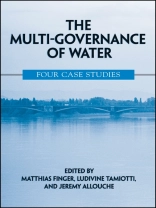Examines the politics of transnational water resource management through case studies of the Aral Sea basin and the Danube, Euphrates, and Mekong river basins.
As the governance of transboundary rivers becomes a subject of growing importance due to the increasing pressure on freshwater resources, this timely collection examines water scarcity and efforts to better manage rivers and river basins. Most specialists agree that states face many institutional inadequacies when dealing with shared resources and that new governance mechanisms are needed to improve water management. Using case studies of the Aral Sea basin and the Danube, Euphrates, and Mekong river basins, the contributors develop a new approach to water governance: the concept of multi-governance, an effort to collectively solve public problems by involving a series of relevant actors from the local to the global level, such as institutions, states, civil society, and business.
Mục lục
List of Illustrations
1. Introduction: Conceptual Elements
Matthias Finger, Ludivine Tamiotti, and Jeremy Allouche
2. The Mekong River Basin: Comprehensive Water Governance
Nantana Gajaseni, Oliver William Heal, and Gareth Edwards-Jones
3. The Danube River Basin
Stephen Mc Caffrey
4. The Euphrates River Watershed: Integration, Coordination, or Separation?
Arnon Medzini and Aaron T. Wolf
5. The Aral Sea Basin: Legal and Institutional Aspects of Governance
Laurence Boisson de Chazournes
6. Conclusion: Globalization, Multi-Governance, and Transboundary River Basin Management
Matthias Finger, Ludivine Tamiotti, and Jeremy Allouche
List of Contributors
Index
SUNY Series in Global Politics
Giới thiệu về tác giả
Matthias Finger is Professor of Management of Network Industries at the Swiss Federal Institute of Technology. Ludivine Tamiotti is Legal Affairs Officer in the Trade and Environment Division of the World Trade Organization. Jeremy Allouche is Director of the Water Institutions and Management Competence Centre at the Swiss Federal Institute of Technology. Finger and Allouche are coauthors of Water Privatisation: Trans-National Corporations and the Re-Regulation of the Water Industry.












